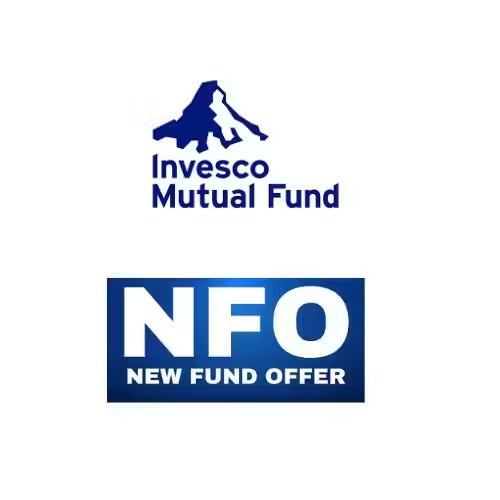
✅ Opening Date
09/08/2024
🚫Closing Date
23/08/2024

✅ Opening Date
12/08/2024
🚫Closing Date
26/08/2024

✅ Opening Date
07/08/2024
🚫Closing Date
21/08/2024

✅ Opening Date
06/08/2024
🚫Closing Date
20/08/2024

✅ Opening Date
29/07/2024
🚫Closing Date
12/08/2024

✅ Opening Date
29/07/2024
🚫Closing Date
12/08/2024

✅ Opening Date
25/07/2024
🚫Closing Date
08/08/2024

✅ Opening Date
24/07/2024
🚫 Closing Date
07/08/2024

✅ Opening Date
19/07/2024
🚫 Closing Date
02/08/2024
Please fill all the fields to get in touch with us.
An asset management company introducing a new mutual fund can generate capital by initiating a new fund offer (NFO). This process is akin to an initial public offering (IPO), where information about the portfolio—such as the company shares to be acquired, types of securities involved, and the fund manager—is provided in the new fund offers. Through these offers, investors have the opportunity to buy units of a mutual fund at a set subscription price, typically Rs.10 per unit. New fund offers can be for both open-ended and closed-end funds, available for a limited time. After this period, these mutual funds are traded in the market based on their respective net asset value (NAV).
According to SEBI regulations, a new fund offering can be available in the market for a maximum of 30 days. The subscription price for these mutual funds is Rs. 10, and the funds raised can be used to purchase securities from various publicly traded companies listed on stock exchanges. Once a new fund offer concludes, any transactions involving that mutual fund must be based on the fund’s NAV. Investing in mutual funds through new fund offers can be advantageous, as investors can acquire units at a low cost, leading to significant profits when the mutual fund begins trading in the open market, resulting in considerable capital gains for individuals.
These mutual funds have a fixed amount of capital that is raised through a new fund offer. Once the subscription period concludes, no additional investments can be made, and the net asset value (NAV) of the fund is calculated based on the number of units in circulation relative to the total value of the underlying assets. Buying or selling mutual fund units must occur through a market exchange, similar to trading stocks. The price at which units are traded reflects the market’s overall demand and supply, determining if a unit is sold at a premium or a discount. For example, Miss Pubali invested in X mutual fund by purchasing 100 units at Rs. 10 each. After the fund began trading on the stock market, the NAV increased to Rs. 12 due to changes in the prices of assets in the portfolio. Consequently, the value of her investment is now Rs. 1,200 (12×100). If Pubali decides to sell her investment in the stock market and finds that investors are willing to pay Rs. 15 per unit, it indicates that the mutual fund is trading at a premium compared to its NAV. Conversely, if there is a negative outlook on fund X’s performance, the price per unit could drop to Rs. 8. In this scenario, the mutual fund would be trading at a discount to its NAV, resulting in a loss if she sells her shares.
2. Open Ended fund
Most mutual funds are classified as open-ended funds, where the number of fund units varies based on demand. New fund offerings allow investors to buy units of a mutual fund before its net asset value (NAV) is established, providing an opportunity for long-term gains. Once a mutual fund is operational, investors must pay the current NAV to acquire each unit. For instance, Monica invests Rs. 500 in open-ended mutual fund Y during its new fund offer, acquiring 50 units. Once the fund becomes active, the NAV is set at Rs. 20 per unit, based on the performance of the underlying assets, meaning any new purchases will occur at this rate. If Monica opts to sell her units, she can receive Rs. 1,000 (50 x 20) at the updated NAV. Both open-ended and closed-end funds serve as investment options, both capable of generating capital gains and dividend returns, depending on the investment scheme. Open-ended funds are typically managed actively by portfolio managers, while closed-end funds are usually managed passively to mirror the returns of a benchmark index.
Fund houses utilize New Fund Offers (NFOs) to gather funds from the public for the acquisition of securities like equity shares, bonds, and more in the market. Additionally, NFOs are generally more affordable since they are newly introduced to the market. They are often compared to Initial Public Offerings (IPOs), where investors can buy shares before they are listed on the exchange. NFOs are also promoted effectively, making it easy to feel tempted to participate. However, since this involves your hard-earned money, it is essential to conduct thorough research and make a well-informed decision before investing.
Investing in any New Fund Offer (NFO) offers numerous benefits, such as portfolio diversification through new strategies, enhanced flexibility, potential profitability, and liquidity, among others. Additionally, the investment goals, anticipated returns, and purpose of the fund are clearly outlined prior to investment. Here are some advantages of NFOs: Investment in New Strategies: Close-ended funds allow you to explore innovative strategies that may not be available in existing open-ended funds. Great Flexibility: Close-ended funds provide the flexibility to choose when to invest in the market. Even if the market is not favorable at the time of the NFO launch, the fund manager can hold a portion of your investment for future opportunities. No Large Flows: In contrast to open-ended funds, investors in close-ended funds are committed for the duration of the fund, enabling the manager to concentrate on effective stock selection and monitoring. Investments in close-ended funds can only occur during the NFO period. Lock-in Support: Staying invested for an extended period is more beneficial than withdrawing early. Many investors exit the market after just two years, often hurting their returns. The lock-in period of 3-4 years in close-ended funds helps prevent impulsive investment decisions.
Fll the Besde Contact form for latest best NFO nvestment. Also you can nvested Through My Apps.
I am a Financial Frelancer haveing 10 years+ experiance to manage your Life Goul.
We are providing Credit crad, Bank account opening ,All type of insurance, Loan & investment plan to set your life with monthly budget.
We also developed web site to startup your business online .
Subscribe to our newsletter and stay updated.
© 2023 Created By ❤️ pallab❤️All rights reserved.